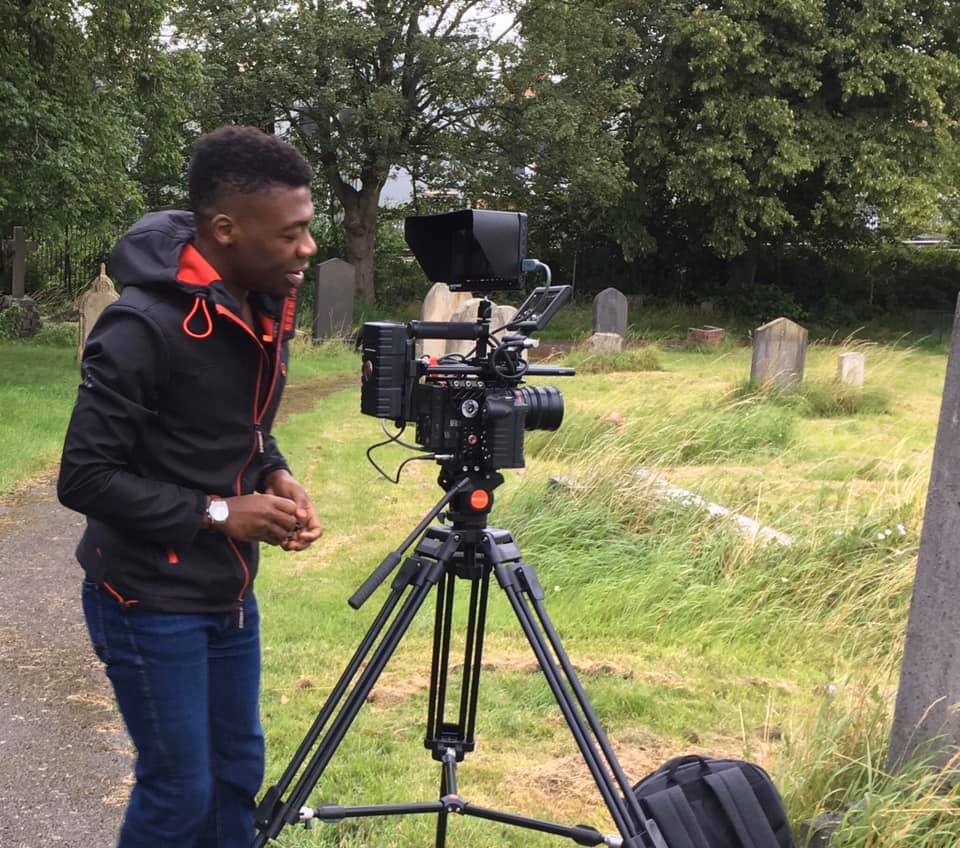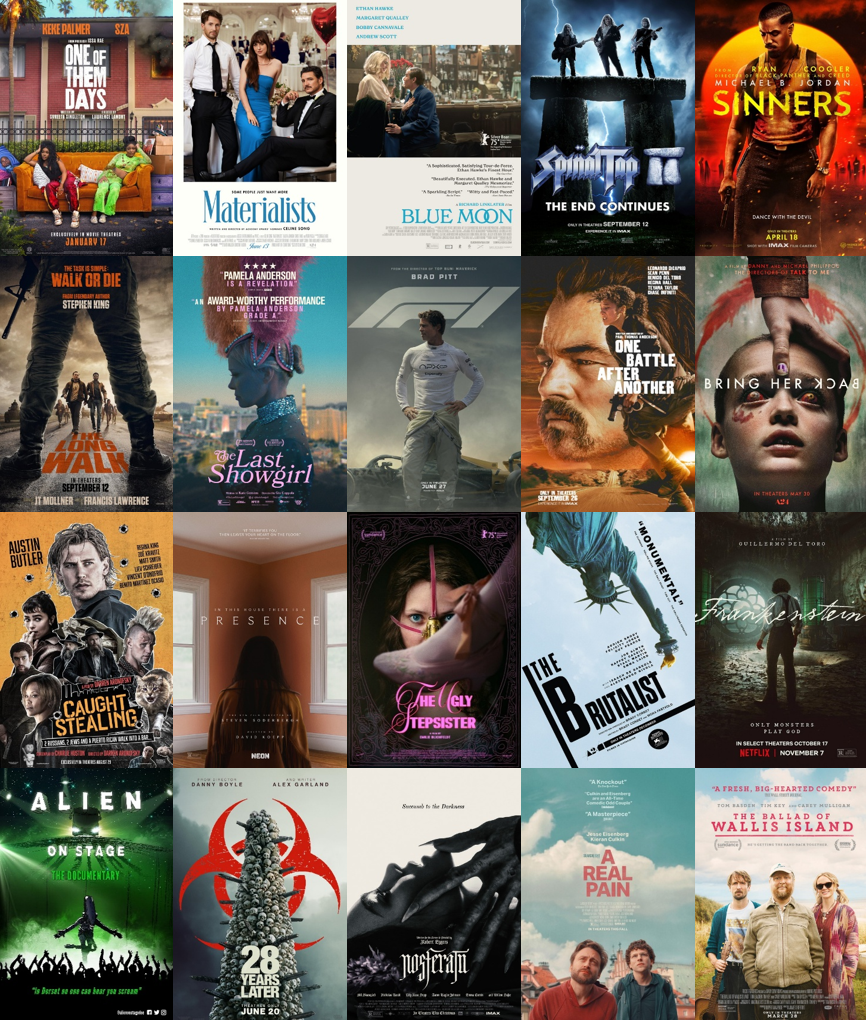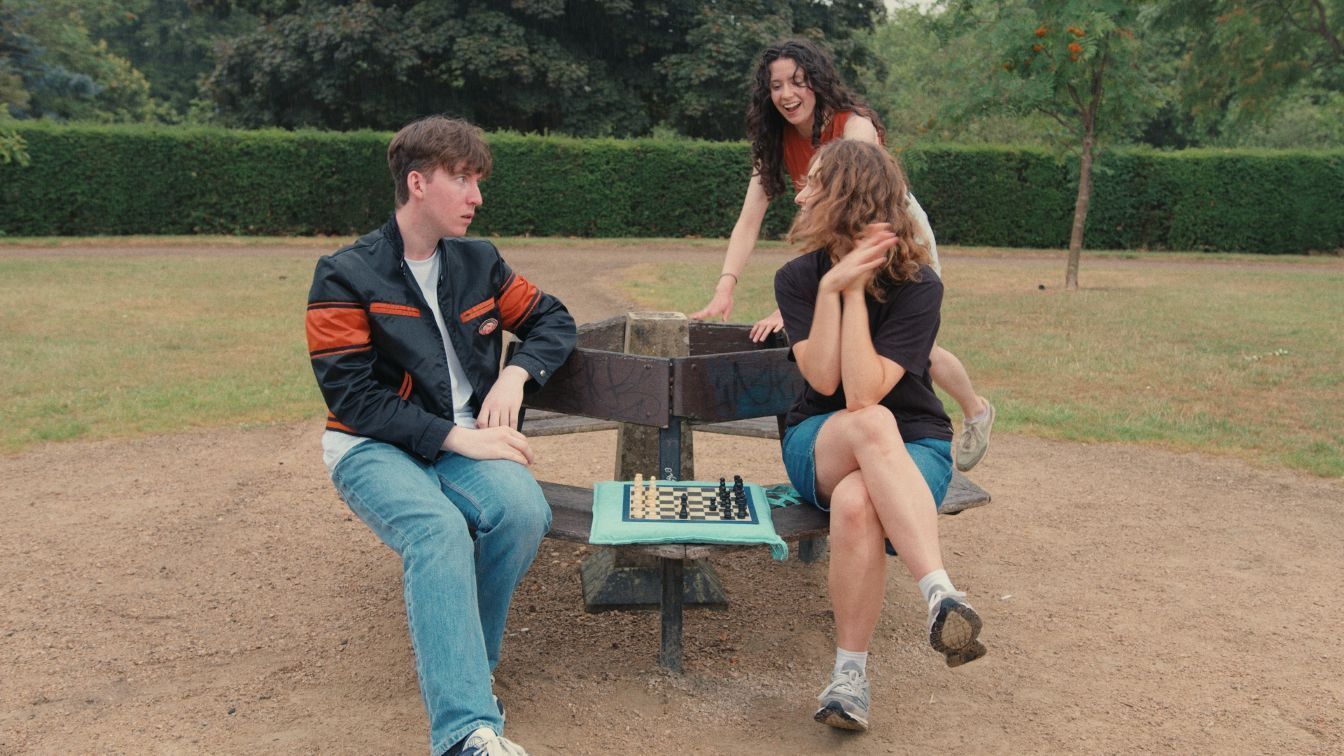A Day in the Life of Midlands Camera Operator Mbili Munthali
midlandsmovies • September 2, 2019
A Day in the Life of Midlands Camera Operator Mbili Munthali

A Day in the Life of Midlands Camera Operator Mbili Munthali
We return with the second entry in our "A Day in the Life of" features courtesy of Kelly McCormack who has been throughout the region and spent time with a number of local productions to find out about what it is like during a day on set.
Covering different roles we hope this will help first-time and more experienced film industry workers see what it's like during a local film shoot.
This week sees local camera operator and director of photography Mbili Munthali take the stage as he tells us about one of his recent days on set and the experiences and challenges he regularly faces:
06:30 - 08:00: Wake up and get ready for the shoot. I like to be limber and although I don't run in the morning anymore, a good stretch feels good and prepares me for the day. Physical and mental readiness really helps. Read my notes from the recon of the location, shoot schedule etc again to put the whole day into context for myself as I will be relaying that information out throughout the day. Have a good breakfast since I have a high metabolism and need nourishment as often as I breathe. Final check of the equipment list that I am taking and need to have at the end of the day (Can't beat a good list).
08:00- 08:30: Get picked up since I don't drive (yet) and make sure I've had strong tea (I don't drink coffee at all).
08:30 - 09:00: Walk the set and unload equipment I have brought. Breathe, the calmer you are through the day the calmer everyone else is. The calm before the storm so get ready to get your head down. The main crew arrive and we have a quick chat and just talk about everything except filming while I help them unload whatever I can. Many hands make light work, this is all a team effort. Set up camera and lights.
09:00 - 09:30: Main cast arrive and go off to make up and outfits. I talk to the director and just touch base for the day and just give them confidence that you have it all in hand and play devil’s advocate for some things that could go wrong but already have options to counter those things. It's not about assessing everything that could go wrong, just to keep a reality check with a lot of optimism. A crew will remember the negative person on set that brings the mood down but if you're taking on challenges with a gun ho attitude, people will gravitate to work with you. A team is only as strong as its weakest link.
09:30-09:45: Touch base with the actors and extras and give some reassurances. You are going to make them look good, they need to trust that they are in safe hands without being pandered to. They have enough to think about being in front of the camera. Extras arrive and get set.
09:45-10:00: Safety briefing with everyone, where everything is, procedure of the day and who to talk to for each department or general questions throughout the day. A reminder that the hardest part is getting the team and talent together, this is the fun part of a long process.
10:00- 13:00: Shoot. Get the hardest parts of the day first. Get as much coverage with minimal set changes as you can but do not compromise. A difficult balance but trust your team, there is a reason they are on this set with you. This is when the actors are at their freshest for the day, capitalise on this. They've been rehearsing and they know what they are doing. Trust them because they trust you behind the camera, the director is getting the performance from them, you need to get the performance from camera, light and sound. Do not skip blocking unless absolutely necessary. This is a partner dance, especially if the camera is moving.
13:00-14:00: Lunch. Very important for everyone. There might be a shortage of time due to something to taking a little longer than expect but we did the best we could to second guest this before we started right? Give each department at least some time to eat and sit for a little bit. Sound to have lunch but have lights and camera set the basics of the next shot. The director should be sat with the talent chatting and reaffirm that they are doing very well. Don't forget the extras. Stand in for framing for camera and lighting and once the bulk of the next set up is done, send them to lunch and grab a bite. Find a seat and eat/drink. A tea to keep that caffeine coming as you shift a few things to get the essential shots but get those extras too. Don't lose heart, it's only been a couple of hours. Make use of your runners to stand in, check equipment is on set for the next run of shots and hydrate everyone. Then they too should eat and rest.
14:00-14:30: Camera and lights back on set. Ready to go again.
14:30-17:00: The last of the shots with extras. Wrap them if they are no longer needed. Work on less physically intensive shots, emotional scenes are a good way to go. The actors have settled into their characters by this point and are not even thinking about the camera and they've just been fed/rested. Run the scenes and get those shots. Shoot the B roll and the scenes you may have missed earlier in the day that you weren't able to before lunch.
17:00-17:30: Give everyone a break. Naturally, everyone is a little tired including you. Just make everyone know that this is the home stretch, you've hit all the shots you wanted and they've been rock stars. Just a last little push.
17:30-19:00: There are some dusk/night shots so get those now. The sun is/has going down in the colder months so move indoors. Runners are packing down some equipment outside to shorten the end of the day.
19:00: That's a wrap! Thank everyone. Everyone. This was a long day and everyone pulled together, despite some things that meant that you had to think on your feet. Everyone already has the information for the next shoot but remind them anyway and trust the rest with your producer. Check your equipment list before you leave. Those markers usually end up going for a walk somewhere. You're going to need them for that next day though.
20:00: You're back home. It's another shoot tomorrow, better get some dinner and sleep - a bit of whisky helps the digestion.
Kelly McCormack





